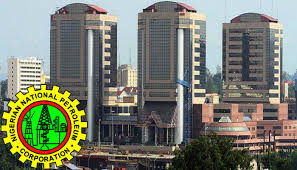The Nigerian National Petroleum Corporation (NNPC) has hinted that the Nigerian oil and gas industry will require at least $40 billion in direct investments in basic infrastructure to achieve the federal government’s much talked-about about “Decade of Gas.”
Similarly , the Secretary General of the Organisation of Petroleum Exporting Countries (OPEC), Dr. Sanusi Barkindo, said the cartel’s latest assessment showed that capital investments in the upstream of the oil and gas industry fell by 30 per cent in 2020.
NNPC said on Wednesday that it was targeting between 7.4 billion cubic feet to 10 billion cubit feet of gas in the next couple of years, compared to its current 1.6 bcf supply capacity.
Speaking at a virtual forum organised by the Association of Local Distributors of Gas (ALDG), tagged “The Decade of Gas: Unlocking Opportunities in the Domestic Gas Market,” the Chief Operating Officer, Gas and Power, NNPC, Mr Yusuf Usman, stated that a major constraint in achieving local content through the programme is the difficult conditions placed by foreign lenders.
He , however, stated that the corporation expects to grow about 10 gas-based industries as it works towards the 10-year target.
He added that the figure on the quantum of funds needed is based on the submissions NNPC has received from potential investors.
In addition, he stated that about 39 thermal power plants were being targeted as opposed to the current 33.
According to him, “by the end of this year, the NNPC is projecting an added gas sales of about 600 mmscfd, compared to its current 1.6 bcf to hit 2.2 bcf by the end of 2021.
“In terms of benefits, we will generate 45,000 megawatts of power in terms of gas use, creating massive employment and import substitution.
“There are changes we need to look at to actualise the decade of gas. We see the huge amount of investment, both Foreign Direct Investments (FDI) that will come into the country upward of $40 billion or much more than that in order to achieve all the aggressive plans that that are outlined in the decade of gas.
This investment will come in the upstream, midstream and downstream, but there are challenges as well because there have been a lot of announcements around funding for fossil fuels and these are some of the things we have to look at as we go forward and we need to figure out the announcement vis-a-vis the foreign estimate that we expect.”
He added that the corporation has a supply plan to deliver up to 4.5 bcf of gas into the market, while going forward, the country expects 7.4 bcf of gas.
According to Usman, there are urgent plans to complete ongoing gas projects in the country, including the AKK project , which he described as one of the most aggressive and biggest pipeline infrastructure ever embarked upon by the country. The pipeline spans 614 km.
He said all the gas activities going on around the country were being handled by local construction companies and local providers of services due to the COVID-19 restrictions.
“Going forward into 10 years, we expect to do another big pipeline that will take up gas from south, all the way into Ajaokuta and possibly we extend it all the way to Maiduguri,” he said.
He expressed the hope that the Petroleum Industry Bill (PIB) will be passed this year, noting that the corporation is ready to adjust to the changes that the law will impose.
Usman stated that by the corporation’s projection, demand for gas to generate electricity in the country will consume between 60 to 70 per cent of the entire commodity produced, with the ongoing plan to generate 45,000MW.
“The other challenge we have is the liquidity in the power sector, and there’s a lot of work going on because it is a very huge market. If you see the demand projections that we have done, it is going to consume 60 to 70 per cent of the gas that we have.
Not only that; without power, all the development programmes we are thinking of will be a mirage. It is an inevitable equation that we have to solve to move towards development and issues around it have to be resolved,” he stated.
Usman urged policy makers to answer the questions surrounding gas pricing, since Nigeria is interested in using gas as a source of revenue as well as balancing between investment and local content drive.
“All these FDI come with conditionality before taking the money. That will put a limit to our local content drive. As you all know, the restrictions by itself affect the kind of projections that we look at,” he added.
He stated that if Nigeria will achieve the decade of gas, it must transit to a willing-buyer willing-seller market.
Besides, there must be a document with timelines as well as defined investment strategies on the announcement that is being made about the restriction for fossil fuel to achieve the decade of gas.

